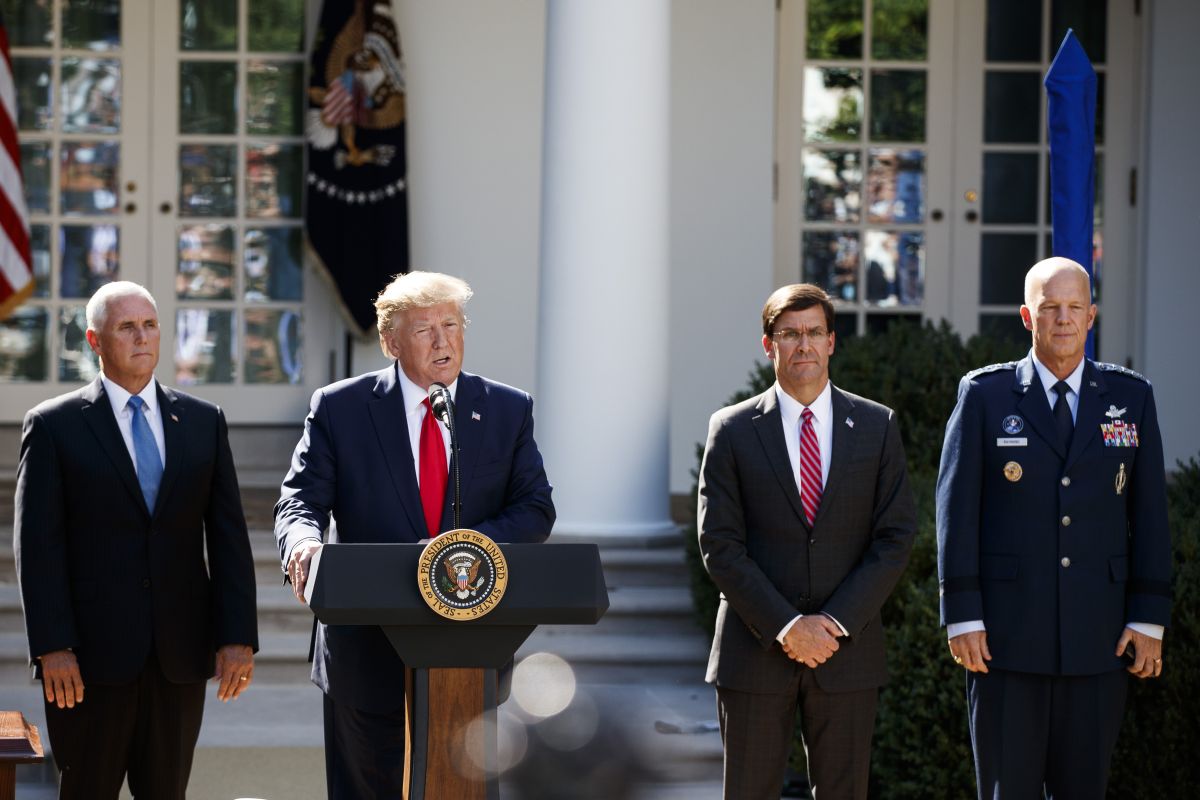US President Donald Trump on Thursday announced the official establishment of the military’s Space Command, aimed at defending the country’s interests in space.
During a ceremony in the Rose Garden, Trump called the command’s creation a “landmark moment” in protecting America’s assets in space, saying it would help “defend America’s vital interests in space, the next warfighting domain and I think that’s pretty obvious to everybody. Its all about space”.
Advertisement
The White House is still working toward persuading Congress to create a Space Force, which would become the sixth branch of the military and the first new one since the Air Force was created in 1947.
The House and Senate have provisions for a Space Force in their Pentagon spending bills, but they differ on some key details, such as how the force would be organized, Washington Post reported.
“The commander of Space Command while saying that he cited advances by Russia and China that have rendered space a contested domain where the United States faces threats that it didn’t before, from the jamming of GPS and communications satellites to the possibility those satellites could be shot down”, Washington Post quoted John Raymond as saying.
“I really believe we are at a strategic inflection point, where there is nothing that we do in the joint coalition force that isn’t enabled by space. Zero,” he said.
Stephen Kitay, the deputy assistant secretary of defense for space policy said, “Fighting extraterrestrial life in outer space is not one of the new command’s missions”.
“Space Command and the United States Space Force, at the end of the day, is focused on life here on Earth because space does impact . . . our way of war and our way of life,” Kitay added.
Ahead of the launch, Secretary of Defense Mark Esper on Wednesday said, “As a unified combatant command, the United States Space Command is the next crucial step toward the creation of an independent Space Force as an additional armed service.”
The US Defence Department officials had discussed Space Force legislation with the congress, sources told SpaceNews.
The Senate proposed a one-year transition before standing up a new military service but the House required no such transition, according to the sources.
The phased-in approach proposed by the Senate came out of concerns about excessive costs and growth in the military bureaucracy.











